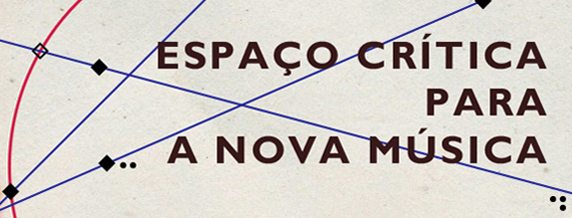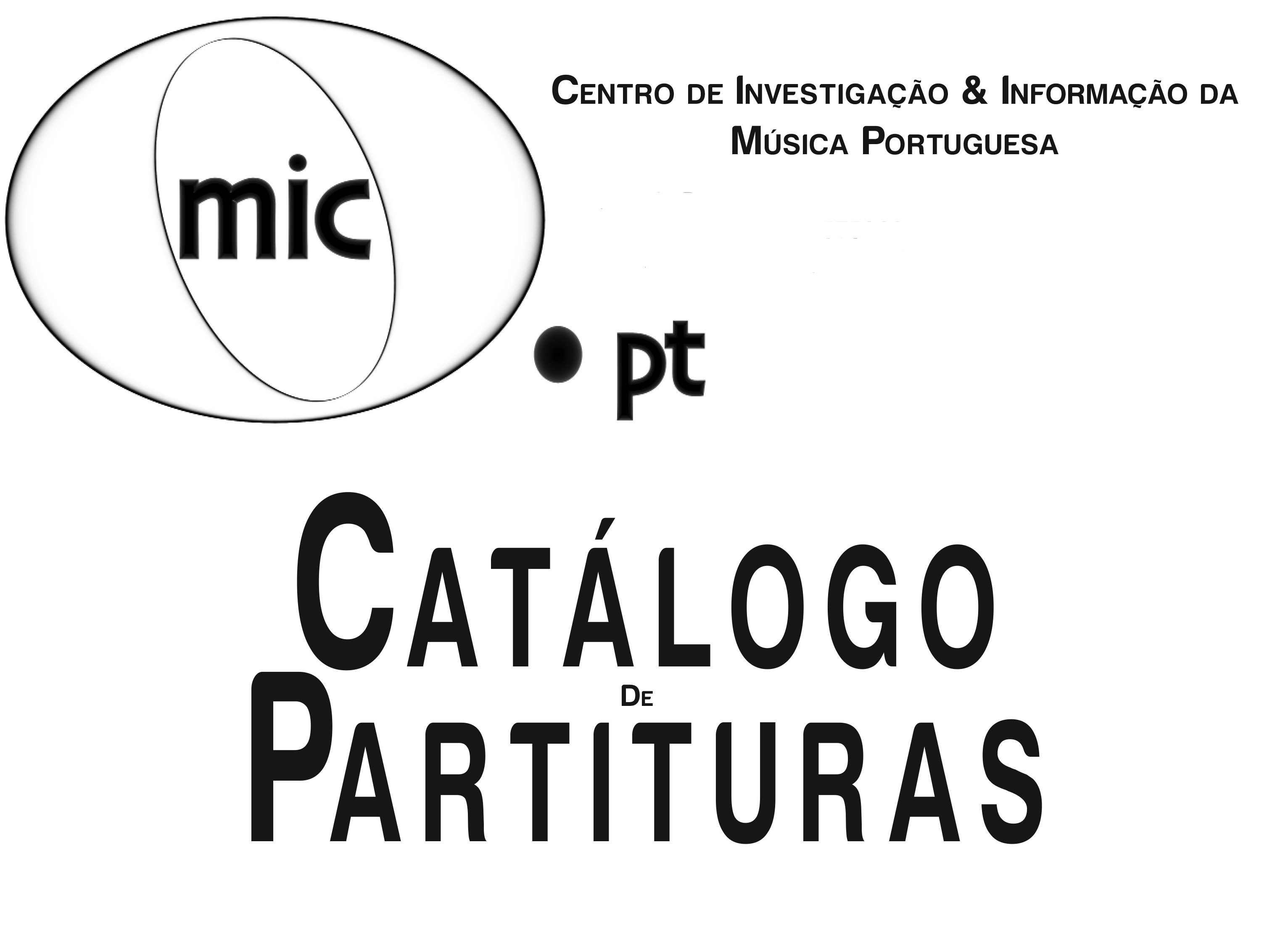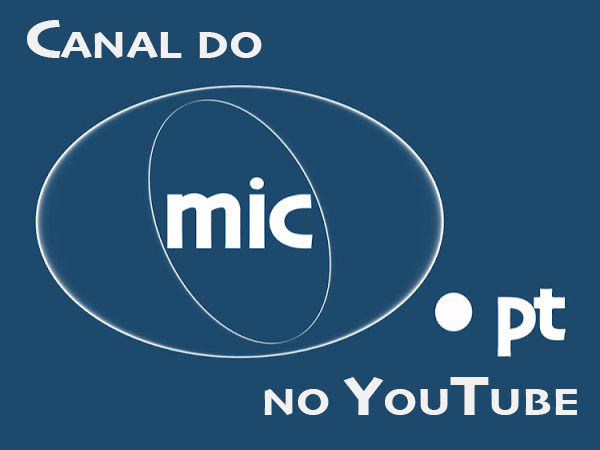Joly Braga Santos was born on May 14, 1924 in Lisbon and this year we celebrate his 90th anniversary. This composer, conductor and critic, a unique and essential figure in Portuguese 20th century music, left a catalogue of around 110 works, among which his orchestral music is particularly noteworthy. Even though his work shares aesthetic kinship with, for example, William Walton, Ralph Vaughan Williams, Jean Sibelius, Benjamin Britten or Dimitri Shostakovich, due to socio-political circumstances at the time in which he came to live and work – fascism on the one hand and the peripheral position of Portugal in Europe on the other – his music never became known internationally as opposed to the works of other composers with similar aesthetics (the ones mentioned above and others). On the pages of his book A Sinfonia em Portugal (The Symphony in Portugal) Alexandre Delgado says: “With Joly Braga Santos we have a case of continuity, quite uncommon in the history of Portuguese music: there was a true passage of testimony between master and apprentice. Indeed, Luís de Freitas Branco was for him a Master, in the word’s genuine meaning – a spiritual father who received him and taught with generosity, always aware of the pupil’s uncommon talent.”[1]
Joly Braga Santos studied the Violin, Piano and Composition at the National Conservatoire in Lisbon; he was pupil of Luís de Freitas Branco (Composition and Musical Science) and Pedro de Freitas Branco, whose contribution to the diffusion of his music was essential. As a young composer he was inspired in traditional Portuguese music and folklore, as well as in renaissance polyphony; these influences are evident in his first four Symphonies, which he composed between the age of 22 and 26, and which were almost immediately performed by the Symphony Orchestra of the National Broadcaster (Orquestra Sinfónica da Emissora Nacional). In 1947, after the premiere performance of his Abertura Sinfónica I at the São Carlos National Theatre, Joly Braga Santos was invited to join the Office for Musical Studies of the National Broadcaster (Gabinete de Estudos Musicais da Emissora Nacional) as permanent collaborator, living exclusively from composing music for this institution, until its extinction in 1954.
In the late 1940s Joly Braga Santos had an important role in mobilizing young people in Portugal, an essential factor for the establishment of the Portuguese Musical Youth (Juventude Musical Portuguesa), of which he was a founding member. In 1948 he attended the International Course of Orchestral Conducting with Hermann Scherchen in Venice, having been colleague of Luigi Nono, Bruno Maderna and Fernando Corrêa de Oliveira. As scholarship holder of the Institute for High Culture (Instituto de Alta Cultura) he studied Musicology and Composition in Italy with Virgilio Mortari, Gioacchino Pasquali and Alceo Galliera. After returning to Portugal, during an extended period of time he dedicated himself to orchestral conducting, and became assistant conductor at the National Broadcaster (Emissora Nacional), where he worked with Silva Pereira and Álvaro Cassuto. He continued composing more regularly from the 1960s, presenting this time his 5th and 6th Symphonies, which mark the transformation of his language and the assimilation of various characteristics from the European avant-garde, as for example extreme chromaticism.
As conductor Joly Braga Santos made his debut in 1950 with the Symphony Orchestra of the National Broadcaster (Orquestra Sinfónica da Emissora Nacional) at a concert organized by the Portuguese Musical Youth (Juventude Musical Portuguesa). Over the years he worked with various orchestras such as the Orchestra of the São Carlos National Theatre, the Porto Symphony Orchestra and the Symphony Orchestra of the Portuguese Radio. It is worth noting the fact that in his concert programmes he always gave attention to contemporary music, having premiered in Portugal works by Krzysztof Penderecki, Alberto Ginastera, Álvaro Cassuto or Jorge Peixinho.
Apart from his vast artistic legacy, Joly Braga Santos exercised an intense activity in the domain of music critique, having written texts for Arte Musical, O Século, Diário da Manhã, Diário de Notícias, Época and Panorama. As professor he lectured Composition at the National Conservatory in Lisbon, he worked at the Office for Music Studies of the National Broadcaster, as well as he made various conferences, for example within the dissemination actions of the Portuguese Musical Youth (Juventude Musical Portuguesa) and at the Courses of Initiation in Contemporary Music organized by the Calouste Gulbenkian Foundation.
In 1981 Joly Braga Santos was decorated with the Order of Santiago de Espada for artistic merit. He passed away in Lisbon on July 18, 1988.
Musical Language
“The great symphony orchestra was the preferential vehicle of Joly Braga Santos' vast personality”[2], nevertheless the catalogue of his works includes a variety of orchestral genres, chamber music, operas, choral music and soundtracks. “(…) I began studying music at the age of six and I started composing at a very early age. The dominant languages were at that time the light chromaticism in the Nordic countries, as well as the polytonality and modalism in the Latin ones where, apart from rare exceptions, one sought for modernisation preferably through diatonic means. (…) the evolution of the musical language is not pursued linearly and according to a chronological and continuous development, but rather through progress and regression (…). This fact can be proved with some examples: Debussy is contemporary to Schönberg and his Prélude a l’aprês-midi d’un faune to Brahms’ 4th Symphony; in the 20th century Sibelius, Richard Strauss, (…), and other much younger composers as Benjamin Britten, William Walton or Dimitri Shostakovich, composed tonally; the pioneers of athematism and of the predominance of timbre, followers of Anton Webern, appeared almost at the same time. I tried to forge my own language on the crossing of this linguistic and musical counterpoint, always taking into account the sincerity with which I expressed myself.”[3]
Joly Braga Santos' first compositions are marked by the figure of Luís de Freitas Branco, however in his music from the 1940s and 1950s it is possible to point out different types of approach and language features. On the one hand one can discriminate the modal melodic and harmonic elements, repetition of rhythmical patterns, so typical for the Portuguese renaissance polyphony, allied to a structure which privileges classical forms. “He was also influenced by traditional music and melodies from the Alentejo region, which he used in the processes of thematic genesis, as well as by the grandiosity of the region’s landscape, which inspired the imposing orchestration”[4], whose examples are such works as the 3rd and 4th Symphonies (composed in 1949 and 1950, respectively), as well as the Variações sobre um tema alentejano (1951).
The end of the 1950s, after Joly Braga Santos' broader contact with the predominant musical tendencies in Europe, marks a transformation in his language, in which he assumes an oscillation between chromaticism and dtiatonicism in the melodic plan, whereas in the harmonic plan one no longer recognizes tonal centres, due to an accentuated polytonality, symmetrical harmonies or even the utilization of clusters. The researchers of his music, Alexandre Delgado[5] (Joly Braga Santos' pupil) and João Paes[6], distinguish two of his works composed in the beginning of the 1960s, Três esboços sinfónicos (1962) and Sinfonietta (1963), as turning points in his musical style. “Between 1955 and 1961 the constant journeys and the activity of orchestra director extended my creative work and were for me a useful rest, which would be decisive for the transformation of my style (…). Since the classical symphonic form is connected with the harmonic functionality and gave its origin, when renovating my language I had to turn my back on the sonata form, since the tonal principles and its derivatives disappeared (…) from my own style (…).”[7]
Joly Braga Santos' 5th Symphony (1965-66) written 16 years after the 4th and acknowledged by the International Rostrum of Composers (UNESCO) in 1969, constitutes the culmination of the transformation of his language, with its richness of clusters, concrete orchestral effects (glissandi), as well as with the predominance of timbre and free chromaticism as constructive factor. Instead of the sonata form with two opposing themes the 5th Symphony has a generating theme characterized by asymmetry and large intervals, which, being at the base of the whole work, constitute what Joly Braga Santos designates as “maximum amplification of the physical space where the musical element is inserted.”[8] “The symphony (…) surprises with its megalomaniac instrumentation, requiring altogether a minimum of 105 instruments.”[9] Despite the inclusion of certain popular rhythmical and melodic elements from East Africa, appearing above all in the second movement and evoking the music of Zavala marimba players, the work has no programme and the most importance is put to its architecture.
The opera Trilogia das barcas, written between 1968 and 70 right after the 5th Symphony, is another Joly Braga Santos' work which evidences the renovation of his language as well as the attempt of assimilating his more lyrical and expansive nature with modernist techniques. According to Alexandre Delgado: “These two radically different creations, written next to each other, show the inaccuracy of the tight division of Joly Braga Santos' production into two phases, the first one modal and the second one chromatic. (…). In Joly Braga Santos the tonal and atonal worlds function as two opposing poles, which generate an electric current.”[10] After his 6th and last Symphony (1971-72), which is “the most exacerbated expression of this dichotomy”[11], never again did the composer approach the symphonic genre, having written concertos for Piano (1973) and Violoncello (1987), as well as chamber and vocal music, works marked with his profound perception of instrumental colour and by the preference of freer forms.
Joly Braga Santos created his own voice with a universalist purpose, absorbing influences from the Portuguese folklore, the music of the past, as well as various characteristics of the European avant-garde language from the 20th century, however “without losing the sense of expressivity and communicability, as well as the necessary ease to compose for the audience of his time.”[12] Despite the good reception of his work both in Portugal and abroad, for example thanks to the recordings of Silva Pereira since the 1960s, or of Álvaro Cassuto, a large part of his music “remains unknown both to music lovers and the music environment.”[13] This state is strengthened, on the one hand, “by the lack of score editions and the difficult access to the composer’s assets”[14], and on the other, by the scarcity of research regarding his career and work, above all at the level of socio-political conditions, which could have influenced his musical language, taking into account that just as Dimitri Shostakovich or Sergei Prokofiev in the Soviet Union the author of the 5th Symphony - Virtus Lusitaniae, developed his activity under the circumstances of a political regime. These problems reinforce even more the need of a major recognition of Joly Braga Santos' work, which “by its scale, sensibility and grandiosity, constitutes the legitimate representative of Portuguese orchestral music in the 20th century. What remains is to take this music to the concert halls of the world.”[15]
Joly Braga Santos on the Música Hoje (Music Today) radio programme: Antena 2, April 26; available on RTP Play.
Joly Braga Santos on YouTube:
Symphony no. 1 (1946)
Portuguese Symphony Orchestra
Álvaro Cassuto – conductor
Symphony no. 4 (1951)
Álvaro Cassuto – conductor
Variações sobre um tema alentejano (1951)
Álvaro Cassuto – conductor
Três Esboços Sinfónicos (1962)
Symphony no. 5 (1965-66)
I Prelúdio
II Zavala (Scherzo)
III Largo
IV Allegro energico ed appassionato
Portuguese Symphony Orchestra
Álvaro Cassuto – conductor
---
1 Alexandre Delgado, A Sinfonia em Portugal (The Symphony in Portugal), Lisbon, 2002, p. 181; English translation: Jakub Szczypa
2 Alexandre Delgado, excerpt from the composer’s note included in the CD edition of Joly Braga Santos' String Quartets released by Strauss / PortugalSom (SP4356); English translation: Jakub Szczypa
3 Joly Braga Santos, excerpt from the composer’s note on his 5th Symphony , included in the work’s CD edition released by Strauss / PortugalSom (SP4043); English translation: Jakub Szczypa
4 Anabela Bravo, Santos, José Manuel Joly Braga in: Enciclopédia da Música em Portugal no Século XX, directed by Salwa Castelo-Branco, Lisbon 2010, p. 1175; English translation: Jakub Szczypa
5 Alexandre Delgado, A Sinfonia em Portugal (The Symphony in Portugal), Lisbon, 2002
6 João Paes, A transformação do Estilo de Joly Braga Santos (The Transformation of Joly Braga Santos’ Style), 2005, included in the anthology Dez Compositores Portugueses (Ten Portuguese Composers), coordinated by Manuel Pedro Ferreira, Lisbon, 2007
7 Joly Braga Santos, op. cit.; English translation: Jakub Szczypa
8 Ibidem
9 Manuel Durão, A transformação estilística na obra orquestral de Joly Braga Santos (The Stylistic Transformation in the Orchestral Work of Joly Braga Santos) in: Glosas, Number 3 Semiannual, May 2011, p. 45; English translation: Jakub Szczypa
10 Alexandre Delgado, op. cit., p. 241; English translation: Jakub Szczypa
11 Ibidem
12 Anabela Bravo, op. cit., p. 1175; English translation: Jakub Szczypa
13 Manuel Durão, op. cit., p. 46; English translation: Jakub Szczypa
14 Ibidem
15 Ibidem





